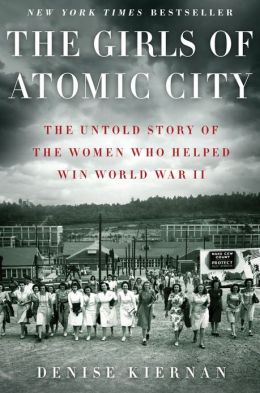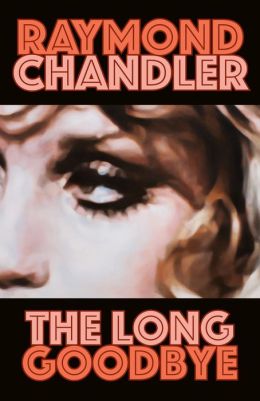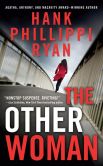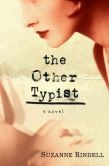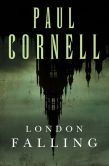I look to my wonderfully creative friends for inspiration and they do not fail me—ever. Over the past few weeks, Nichole Christoff has inspire me with her summer reading list and last week's blog guest, Christine Trent, inspired me to focus my reading on what I'm dubbing: "petticoat sleuths." That's right, those crime-fighting women of the sub-sub-genre: historical mystery with female protagonist.
Happily, this is fertile ground and there are many choices. For your reading pleasure, I've assembled a selection of authors and their creations spanning 13 centuries and two continents. The selected books all feature a female amateur sleuth with or without a husband, lover or boyfriend. For a more in-depth listing of the genre over many centuries go to Women In World History by clicking here or see this slide show at Huffington Post here.
7th Century Ireland
Sister Fidelma Mysteries by Peter Tremayne. Sister Fidelma is a Celtic religieuse and a dalaigh, an advocate of the ancient law courts of Ireland. Fidelma usually solves crimes with her partner (and eventually husband) Brother Eadulf, a Saxon religieux. I've read a number of these books and they're fascinating. The series focuses on domestic and royal crimes.
 Regency England
Regency EnglandThe Mr. and Mrs. Darcy Mysteries by Carrie Bebris. This series feature newlyweds Elizabeth Bennet and Mr. Darcy from Jane Austen's Pride and Prejudice as reluctant sleuths who become embroiled in intrigues surrounding their friends and family. The series offers plenty of lively dialogue, suspense, and romantic interplay, with eerie twists reminiscent of the gothic novels so popular in Austen's day. I've read a few of these and found them delightful. A good spinoff on JA's work and the tone of the time.
 Death and the Courtesan by Pamela Christie.
Pamela Christie’s sparkling historical mystery goes beyond the modest
drawing rooms of Regency London in the company of the city’s most
esteemed and scandalous courtesan Arabella Beaumont. It falls to
Arabella and her resourceful sister, Belinda, to clear her good—or at
least innocent—name. Utilizing all the talents in her arsenal, the
irrepressible Miss Beaumont will endeavor to catch the real culprit,
before the hangman catches up to her… Haven't read this, but just put it on my wish list. I like a feisty heroine who bucking the system.
Death and the Courtesan by Pamela Christie.
Pamela Christie’s sparkling historical mystery goes beyond the modest
drawing rooms of Regency London in the company of the city’s most
esteemed and scandalous courtesan Arabella Beaumont. It falls to
Arabella and her resourceful sister, Belinda, to clear her good—or at
least innocent—name. Utilizing all the talents in her arsenal, the
irrepressible Miss Beaumont will endeavor to catch the real culprit,
before the hangman catches up to her… Haven't read this, but just put it on my wish list. I like a feisty heroine who bucking the system.19th Century England
The Amelia Peabody Series is a series of nineteen mystery novels and one nonfiction companion volume written by Elizabeth Peters, featuring Egyptologist Amelia Peabody Emerson. Everybody knows the famed egyptologist Amelia Peabody. 'nuff said.
Charlotte & Thomas Pitt Series by Anne Perry. Victorian policeman Thomas Pitt and his well-born wife Charlotte solve mysteries. About the first book, The Carter Street Hangman, reviewers said: "An ingenious mystery and an excellent example of manners and caste systems of the Victorian era."
19th Century New York
The Gaslight Mystery Series by Victoria Thompson. "Turn-of-the-century New York, a courageous midwife-sleuth, a fast-paced plot, and plenty of authentic period atmosphere," says one reviewer. Edgar® Nominated author Victoria Thompson writes series feature midwife Sarah Brandt and Detective Sergeant Frank Malloy of the New York City Police. Apparently Sara and Frank have been solving mysteries and gradually falling in love over the first 14 books. I've read one and I'm going back for more.
Early 20th Century England
Edgar-winning mystery writer Laurie R. King writes the Mary Russell series. May is partner/wife to Sherlock Holmes. Mary became first Holmes's apprentice, then his partner. Starting with The Beekeeper’s Apprentice, Russell and Holmes move through the ’teens and ’twenties in amiable discord, challenging each other to ever greater feats of detection, traveling the world from Sussex to Simla. Haven't read this series yet but it has come highly recommended.
England WWII
The Maggie Hope Mystery Series by Susan Elia MacNeal features whip-smart heroine Maggie Hope. MacNeal introduced the remarkable Maggie Hope in her acclaimed debut, Mr. Churchill’s Secretary. Maggie graduated at the top of her college class and possesses all the skills of the finest minds in British intelligence, but her gender qualifies her only to be the newest typist at No. 10 Downing Street. Her indefatigable spirit and remarkable gifts for code breaking, though, rival those of even the highest men in government, and Maggie finds that working for the prime minister affords her a level of clearance she could never have imagined—and opportunities she will not let pass. That sounds like a great premise to me! Sign me up.
Mid-20th Century England
Miss Jane Marple Series by Agatha Christie. Miss Marple is an elderly spinster who lives in the village of St. Mary Mead and acts as an amateur detective. Alongside Hercule Poirot, she is one of the most loved and famous of Christie's characters and has been portrayed numerous times on screen. My personal favorite actress to play JM is Joan Hickson.
This is just the tip of the ice berg and I’m sure I've left off YOUR favorite sleuth. In fact, I've left off a lot of favorites. A thousand pardons. Please, enlighten me and our readers by leaving a comment with the petticoat sleuth you like the best.














